Gauley Bridge Felony Lawyer, West Virginia
Not enough matches for Gauley Bridge Felony lawyer.
Below are all Gauley Bridge Criminal lawyers.
Jody D. Wooton
✓ VERIFIEDMotor Vehicle, DUI-DWI, Criminal, Consumer Rights, Wrongful Termination
Jody's intrigue with the legal system began about the time he was becoming a teenager. He vividly recalls observing his father and uncle working to es... (more)
Ronald N. Walters
✓ VERIFIEDAccident & Injury, Criminal, Bankruptcy & Debt, Family Law, Trusts
Ron has, over the last decade, assisted clients by planning and designing settlements to address future needs and ensure any government benefits are p... (more)
Claude S. Smith, III
✓ VERIFIEDAccident & Injury, Personal Injury, Divorce & Family Law, Criminal
Whether you have suffered an accident while on the job or suffered an injury during a car accident or semi truck accident, The Law Offices of Claude S... (more)
FREE CONSULTATION
CONTACTTraci L. Wiley
Criminal, Colleges & Universities, Commercial Insurance, Construction Contracts
Status: In Good Standing




